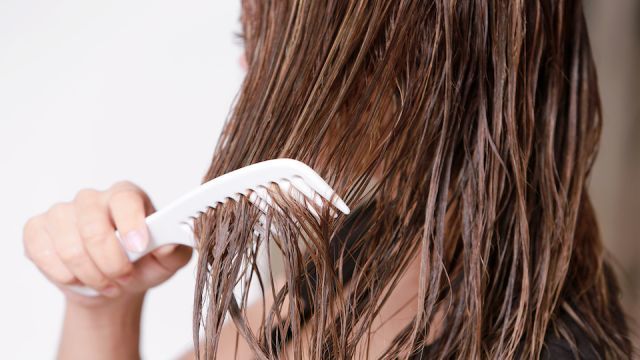
Do you routinely have a shower before bed and hit the sack with wet hair? If so, do you worry when people tell you it is a bad idea and that you are going to get sick if you continue doing so? Going to bed with wet hair and a number of other popular myths seem to be pretty deeply entrenched in our culture.
Let’s unpack this so-called wet hair myth and the rumors surrounding it so that we can put it to rest once and for all.
Myth: Wet hair and night will make you sick because you are cold
According to Dr. William Schaffner, a professor of medicine in the Division of Infectious Diseases at Vanderbilt University Medical Center, the idea of wet hair in bed making you sick stems from the folklore that getting chilled and wet will cause you to get a cold.
Although it is true that you are more likely to catch a cold during the winter months, it is relative to how respiratory viruses multiply and spread. According to Schaffner, “You cannot catch a cold from being cold.”
Myth: Wet hair at night will make you sick because bacteria colonize on your pillow
Another popular wet-hair myth is that dangerous bacteria will grow on your pillow. However, harmful bacteria and viruses don’t develop spontaneously, so you won’t get ill if your pillow is a little wet at night.
What we do know is that some research shows that allergy-causing molds and fungus are sometimes found on pillows – especially those with synthetic fibers. These microorganisms, as well as dust mites, especially love damp environments
According to Dr. Payel Gupta, a board-certified allergist and spokesperson for the American Lung Association, that there is zero evidence that people who go to bed with wet hair will have more allergy or asthma symptoms than those who go to bed with dry hair. However, if you have a stuffy nose, itchy or watery eyes along with breathing problems, make sure that you wash your bedding and pillow cases in hot water at least once a week to reduce any irritants.
Some truths about sleeping with wet hair
Now that you know that sleeping with wet hair will not increase the likelihood that you get sick, here are some truths that you do need to know.
Truth: Sleeping with wet hair can cause damage to hair follicles
If you make it a regular practice to go to bed with wet hair, you may be doing damage to delicate hair follicles. According to Dr. George Cotsarelis, a professor of dermatology at the University of Pennsylvania’s Perelman School of Medicine, water can degrade your hair follicle’s protective outer layer, the cuticle. When the cuticle breaks down, water can penetrate and rupture the inner cortex of the follicle. This can lead to a loss of shine and elasticity and cause hair to break. If you do sleep with wet hair, be sure to use a high-quality organic leave-in conditioner to help protect your follicles.
Truth: Sleeping with wet hair can damage your skin
If you sleep on your stomach or even your side, your wet hair can get pinned between your pillow and your face. This can cause irritation to the skin on your face. In addition, as the water evaporates from your hair, it can promote dryness on both your face and your scalp. If you have to sleep with wet hair, make sure your hair is not touching your skin.
Truth: Going to bed with wet hair may help you sleep better
While most people who sleep with wet hair should not experience negative side effects, there may actually be something positive about this once thought dangerous practice. Some research indicates that wet hair cools the head and can calm down the brain’s metabolic activity, which can promote a good night’s sleep.
Takeaway: While there may be some very mild risks associated with sleeping with wet hair – the myths have been exposed, and it is not something that you should lose sleep over!
-The Alternative Daily

